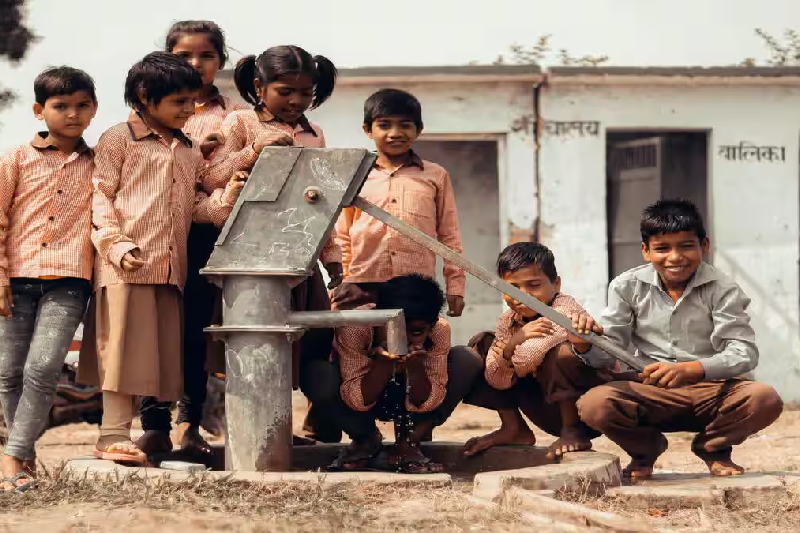
Maharashtra Teachers Urge Halt on FYJC E-Admissions in Rural Areas Amid Poor Network and Digital Divide
As Maharashtra embarks on its annual First-Year Junior College (FYJC) admission process, a growing concern has emerged from the state’s most underserved corners. The Maharashtra State Junior College Teachers' Federation has appealed to the state government to pause the rollout of the online admission system in rural and tribal areas, citing critical challenges such as poor internet connectivity, lack of smartphone access, and widespread digital illiteracy.
The request, made via a letter addressed to the chief minister, both deputy chief ministers, and the education minister, underlines a significant digital disparity that threatens to exclude thousands of eligible students in tribal belts, hilly hamlets, and interior villages of Maharashtra.
'Dead Zones' and Digital Divide: Barriers Beyond Technology
The federation's letter paints a vivid picture of the realities in regions like Melghat and Gadchiroli, where students struggle with unreliable network access and the very absence of mobile devices. In such areas, even the idea of accessing a digital portal for admissions seems far-fetched.
“This system may work in Mumbai. But in Melghat or Gadchiroli, students don't even own a mobile phone, let alone navigate a web portal,” said a senior teacher from the federation.
The economic constraints of families in these regions worsen the situation. Most parents cannot afford smartphones or internet packages, and digital literacy remains alarmingly low. Students and parents find themselves unable to comprehend or navigate the online admission forms, often available only in English or Marathi, without proper guidance or translations.
Unintended Consequences: Exploitation and Stress
According to the federation, what was introduced as a step toward administrative efficiency is resulting in exploitation and frustration. Cyber cafes and local agents in rural pockets have reportedly started charging exorbitant fees to help digitally illiterate families with online applications.
Neither students, parents, nor educational institutions in these regions had requested such a shift to online. The process is doing more harm than good,” states the federation.
This surge in demand for "help" is not just financial—it’s emotional. Parents queue for hours at understaffed cyber cafes, often paying up to several hundred rupees per application, a sum that many rural families struggle to afford. The letter argues that this system has transformed a basic admission procedure into a burdensome, disempowering ordeal.
Urban-Rural Disparity in Admissions: A Reversal of Needs
Ironically, rural junior colleges struggle to fill vacant seats while urban centers like Mumbai, Pune, and Nagpur see fierce competition for a limited number of college seats. Instead, the very demographic that online systems were expected to serve better is being left behind.
The centralized e-admission portal, launched for FYJC 2025–26, aims to streamline the admission process. However, its reach is being seriously questioned. Instead of acting as a bridge, the digital-only model is proving to be a barrier for those in remote regions.
Technical Failures Fuel Frustration
Adding to the woes, the official FYJC admission website crashed on the first day of the admission cycle, further eroding public confidence. Parents and teachers across districts reported widespread technical glitches, login failures, and inaccessible forms.
Teachers from rural junior colleges, many of whom sacrificed their summer breaks to facilitate the process, reported feeling demoralised and overburdened. With little clarity from the government and minimal impact from the digital migration, many now question the new system's effectiveness.
Federation’s Appeal: Restore Offline Admissions for Rural Areas
In a final plea, the Teachers’ Federation has urged the government to allow offline admissions for rural junior colleges, at least for this academic year. They argue that the idea is not to resist change but to ensure inclusivity and equity in the admission process.
They argue that offline admissions would:
- Ensure that students without digital access are not left behind
- Restore trust among parents and educators in the admission system.
- Prevent exploitation by intermediaries.
- Reduce the workload and anxiety of teaching staff burdened with technical assistance.
The Road Ahead: A Call for Inclusive Digitisation
As Maharashtra navigates its digital transition in education, the lessons from the ground cannot be ignored. While cities may benefit from tech-driven reforms, rural and tribal students require context-sensitive solutions that address their infrastructural and socio-economic limitations.
The issue now rests with policymakers. Whether the government will amend its approach and adopt a hybrid model for FYJC admissions remains to be seen. For now, the voices from rural Maharashtra grow louder, reminding the state that access is not equal, and progress must include everyone.



